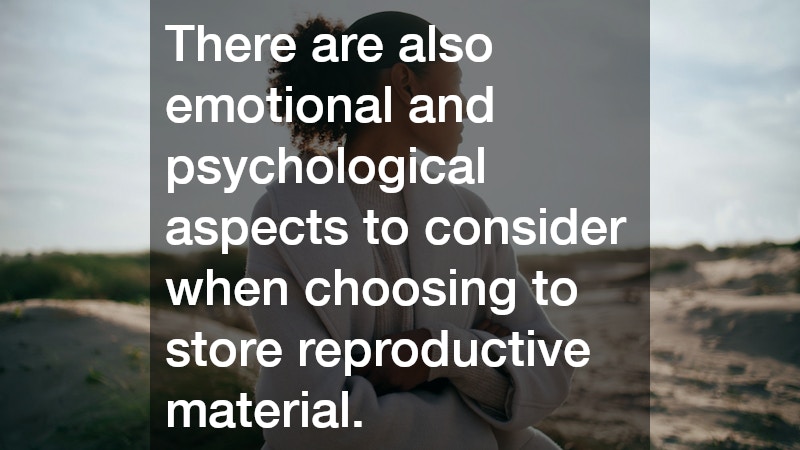The journey to parenthood can be a deeply personal and sometimes challenging path. Fertility banks play a crucial role in supporting individuals and couples in their quest to build a family. Understanding how a fertility bank functions and what services it offers can be essential when considering it as an option on your path to parenthood.
Understanding Fertility Banks
Fertility banks, also known as cryobanks, are specialized facilities where reproductive cells like sperm, eggs, and embryos are preserved for future use. These banks utilize advanced cryopreservation techniques to ensure that the genetic material remains viable over extended periods.
The primary purpose of a fertility bank is to provide a secure storage solution for individuals who wish to delay parenthood or for those who are undergoing medical treatments that might affect their fertility.
The demand for fertility banks has increased over recent years, partly due to advancements in reproductive technology and greater awareness of fertility preservation options. Fertility banks cater to a diverse array of clients, including single individuals, LGBTQ+ couples, and those facing medical challenges that impact fertility. As society becomes more accepting and supportive of various family structures, the services offered by fertility banks become increasingly vital in aiding reproductive goals.
Operating a fertility bank requires stringent adherence to ethical and legal standards to protect the rights and well-being of all involved parties. This includes precise documentation and informed consent procedures to ensure that clients fully understand the processes and implications involved in banking reproductive materials. Additionally, fertility banks must comply with regulatory requirements and best practice guidelines, including maintaining the confidentiality and security of client information.
Services Offered by Fertility Banks
Fertility banks offer a wide range of services to accommodate the diverse needs of their clientele. One of the most common services is sperm banking, which involves collecting and storing sperm for individuals who want to preserve their fertility for future use. This is particularly beneficial for men who may be undergoing medical treatments such as chemotherapy, which can compromise fertility.
In addition to sperm banking, fertility banks also offer egg and embryo freezing services. Egg freezing is an option for women who wish to delay childbirth but want to ensure their eggs remain viable as they age. Embryo freezing, on the other hand, involves fertilizing an egg with sperm before freezing, which can be a preferred choice for couples undergoing in vitro fertilization (IVF) and who wish to store embryos for future cycles.
Many fertility banks also provide genetic testing services, which include screening for genetic disorders and abnormalities before storage. This can be particularly beneficial for individuals who have a family history of genetic conditions and want to ensure the health of their future offspring. By providing these comprehensive services, fertility banks enable clients to make informed decisions about their reproductive futures based on thorough genetic insights.
Benefits of Using a Fertility Bank
Preserving fertility through a fertility bank offers numerous benefits, particularly the peace of mind that comes with knowing biological material is safely stored for future use. This is especially reassuring for those facing medical treatments that might otherwise limit their ability to conceive naturally. By using a fertility bank, individuals have greater control over their reproductive timelines, allowing them to focus on career, education, or personal life goals without sacrificing the option of parenthood later on.
Fertility banks foster inclusivity by serving a wide array of potential parents, including LGBTQ+ individuals who might require donor sperm or eggs. This inclusivity enables more people to realize their dream of becoming parents regardless of their marital status or sexual orientation. Moreover, fertility banks support single individuals who wish to become parents independently, ensuring that the journey to building a family is not bound by traditional limitations.
Challenges and Considerations
While fertility banks offer significant benefits, there are challenges and considerations to be mindful of. One key factor is the cost associated with storage and maintenance of reproductive materials, as long-term cryopreservation incurs ongoing fees. For some individuals, these costs may be prohibitive and need to be carefully weighed against the potential benefits.
There are also emotional and psychological aspects to consider when choosing to store reproductive material. The decision to preserve fertility can involve complex emotions, including anxiety about future outcomes and the ethical considerations of creating potential offspring. Professional counseling and support services are often recommended to help individuals navigate these feelings and make informed choices.
Is a Fertility Bank Right for You?
Deciding whether to use a fertility bank is a deeply personal choice that involves weighing various factors, including current health, financial considerations, and future family plans. By preserving reproductive material, individuals and couples gain valuable flexibility and control over their reproductive futures. This allows them to pursue personal and professional aspirations without sacrificing their long-term family goals.
A fertility bank can provide a feeling of empowerment to those who may face uncertainty due to health or personal circumstances. For many, the knowledge that they have taken steps to secure their reproductive potential brings immense relief and satisfaction. Consultation with fertility specialists and thorough research into reputable fertility banks is essential to make an informed decision that aligns with one’s values and aspirations.

